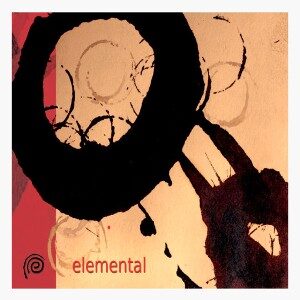Full disclosure: A couple of years ago I ran into Frank Wallace at a local event (we used to live a couple of towns apart in southern New Hampshire), and we spent some time talking about music–specifically about how the way most people listen to music has changed. How for many it’s a much more casual–or at least what appears to be a less focused–experience, of which one of the principal means can be described in a word: headphones. Or more specifically, those tiny bits of plastic people insert in their ears. When attached to their usually pocketed devices, this allows the plugged in listener to do lots of things besides just, well, listening. And, more to the point, even if you are actually just listening to the music, what you are hearing is nowhere near the same as live music in a real space, or even close to a well-made recording played on a decent room sound system. (And we’re not even mentioning those ubiquitous wi-fi speakers that pop up everywhere, spewing reams of droning wedding dance music or endless Barry Manilow songs while you prepare your toddler’s afternoon snack or tend the animal matter charring on the backyard grill.)
So, the question is, what happens to music created to be listened to? Music whose value, whose point, whose virtual effect can only be made/appreciated when one actually listens to it? This is not the music of a Star Wars movie (no offense to John Williams!) nor from a [plug in name of major pop singer here] or modern Broadway show. But this is the music of accomplished, well regarded composers who write not primarily from commercial interest or necessity, but from whatever force that drives them to create (always with the hope that it will touch, invigorate, inspire, or simply enchant a few others who happen to hear it). I’m talking about listening in a critical, analytical, yet absolutely not necessarily academically regulated manner–the way someone with some musical knowledge and appreciation, or who just happens to love music but can’t express their appreciation in musical terms, experiences a piece and brings their understanding to an evaluation of how it affected them, what they liked or disliked, etc. That is, people who spend some time and effort thinking about musical things bringing their love and understanding to the experiencing, the listening.
Which brings us to these marvelous compositions by guitarist/composer Frank Wallace. It’s difficult to write about guitar music–probably somewhat like actually writing guitar music. The instrument is not at all forgiving, and it doesn’t allow for the kinds of expressive effects available, say, on other stringed instruments like the violin or cello. You’re restricted by the sound of plucked strings, which not only have little room for variation, but whose resonance lasts but an instant (a strum lasts a little longer). You have to make your statements, your thematic ideas, your expressions quickly and incisively, whether composer or player.
Since Wallace is a virtuoso guitarist, he understands the finest details, the possibilities and limitations of his instrument. And he exploits every opportunity to emphasize or refine or hold back or exult the vocal character, to assert the melodic voicings or percussive effects of the guitar in ways that, yes, reward your ears, your decision to sit and listen. For this is truly listening music, which is not to say it’s “easy” listening music. No, that is not what Wallace is concerned with. Nor is he concerned with “difficult”. Rather, he’s concerned with poetry, something you’re not surprised at the more you listen, and with exploring and expressing what must come from the guitar–as he imagines and breathes and soulfully feels it. “Elemental” is a perfect description of this music, and in the liner notes Wallace briefly discusses his intentions, motivation, and inspiration for creating these compositions. There’s lyricism, meditative reflection, sharp assertiveness, gorgeous billows of harmony, bursts of sparkling, ringing harmonics; there’s boldness and even brashness, juxtaposed with the most tender warmth and delicacy. Wallace leads us along, never leaving us wondering where we are or what’s going on.
He also describes the remarkable instrument he plays and the circumstances that led to his opportunity to use it for the recording. It was originally commissioned in 1931 from Hermann Hauser by Andrés Segovia, then came into the hands of Blanche Moyse (of Marlboro Music Festival fame), and ultimately to the possession of a friend of Wallace, and from there went through a desperately needed restoration. This recording is something of a celebration of the instrument’s return to life–not least of Wallace’s thorough mastery of it–and of a brilliant composer/guitarist’s homage to the art of listening.
































